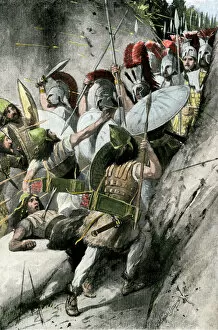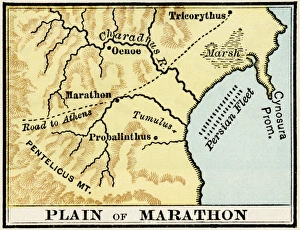Persian Wars Collection
The Persian Wars (490-449 BC) mark a pivotal moment in ancient history, as the Ancient Greeks defied the mighty Persian Empire's invasion attempts
All Professionally Made to Order for Quick Shipping
The Persian Wars (490-449 BC) mark a pivotal moment in ancient history, as the Ancient Greeks defied the mighty Persian Empire's invasion attempts. At Thermopylae, King Leonidas and his 300 Spartans held off Xerxes' vast army, inspiring heroic resistance. Xerxes retaliated by building the Bridge of Boats across the Hellespont, but the Greeks, led by the brave Aristides, burned it down. The Market of Sparta served as the meeting place of the Ephors, where the Greek alliance was formed. The Persians were defeated at the Battle of Platae, and the Greeks celebrated their victory at the Plain of Marathon. The final land battle of the second Persian invasion took place at Plataea, where the Greeks, including Spartan troops, decisively defeated Xerxes' forces. In the end, the Greeks celebrated their hard-earned victory at Salamis, securing their freedom and shaping the course of Western civilization.










